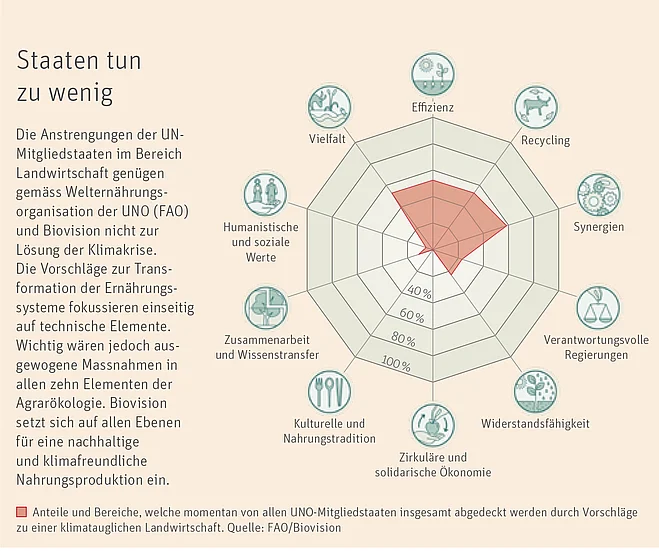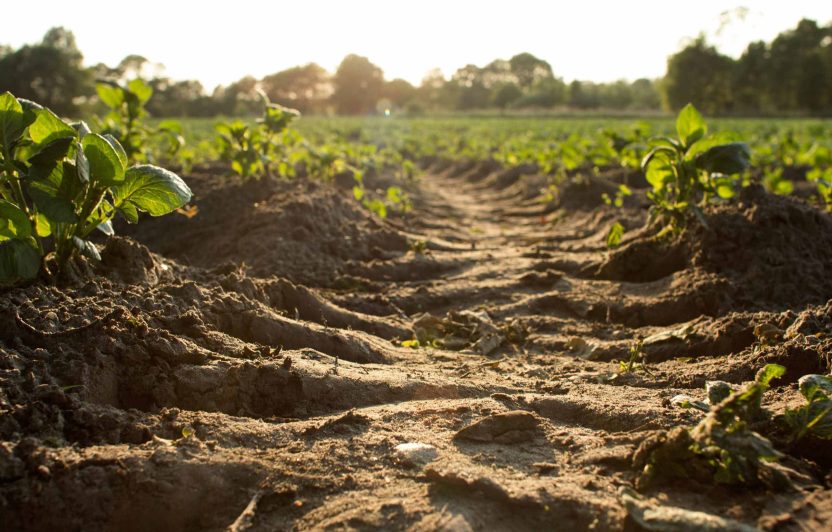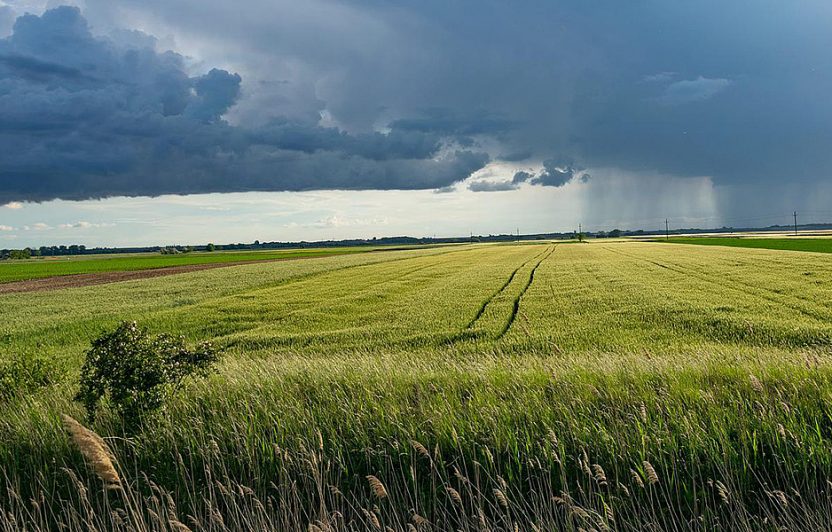What development cooperation experience has long shown is now scientifically proven: agricultural ecology is an effective means for farmers to arm themselves against the consequences of climate change. This is demonstrated by a comprehensive study on agricultural ecology and climate change, which Biovision developed together with the UN Food and Agriculture Organisation (FAO).
The food system as a whole, from production to sale, is responsible for around one third of all greenhouse gases. At the same time, the agricultural sector is particularly threatened by climate change. Agroecology can contribute to solving both problems. The research also shows that the many aspects defined as necessary for climate resilience – set as a goal by the signatories of the Climate Convention themselves – are almost identical to the various aspects of agroecology.

It needs changes on political level
The international political level, however, is almost only considering exclusively technological aspects like composting, mixed cultivation or agroforestry. Neglected is the need to change market and political power structures. To make these changes, central elements of effective climate resilience would need to include establishing regional recycling economies, involving all actors in political decision-making processes and supporting participatory research.
A lot of influence is still needed to bring agroecology its breakthrough moment. Above all, we need to understand that a systemic approach is a prerequisite for effectively slowing down climate change and sustainably securing food production in the long term.
For further information about the study and work of Biovisions’ Policy- and Advocacy team, please visit:





